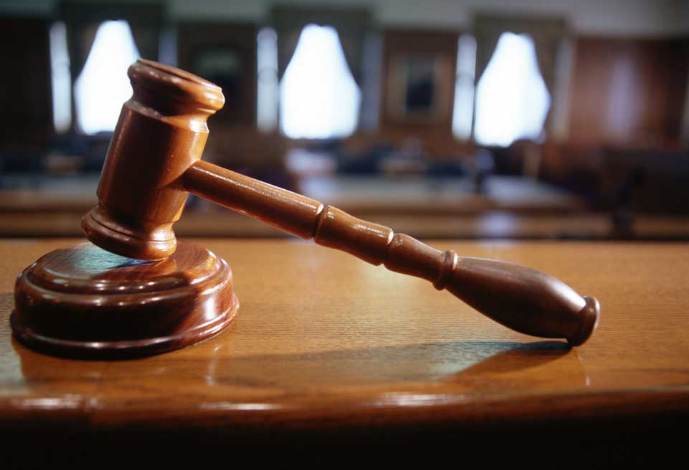Rules of Courts and How to Get a Divorce Lawyer in the U.S. Community
While exploring the U.S. general set of laws, particularly in divorce, from cases, it’s fundamental to comprehend the (standards) of courts and how to track down a skilled divorce (legal counselor). Court rules act as the establishment for how judicial procedures unfurl. Whether it’s a common, criminal, or redrafting case, complying to these guidelines is imperative to guarantee fair preliminaries and equity. Furthermore, finding the right divorce attorney can essentially affect the result of your case. In this article, we’ll plunge into fundamental court rules, how they apply, and significant ways to get the right lawful portrayal for your divorce.
What Are Court Rules?
Court rules are the systems and rules that oversee how legitimate cases are dealt with in different kinds of courts, including common, criminal, and re-appraising courts. These standards guarantee that preliminaries are led decently, proof is appropriately introduced, and the two players are offered a chance to put forth their defense. In the U.S., there are a few arrangements of government decides that frame the lead of legal procedures in bureaucratic courts.
Federal Rules of Civil Procedure
The Government Rules of Common Method administer common cases — debates between people or associations over issues like agreements, property, and family regulation (counting divorce). These guidelines give the construction to how a common case is started, how records are served, and how disclosure (the trading of proof) is taken care of.
For instance, in a divorce case, the Government Rules of Common System might direct the way that monetary data is divided among life partners. Understanding these guidelines is fundamental, as neglecting to agree can bring about postponements or even excusal of the case.
Federal Rules of Evidence
Albeit the Government Rules of Criminal System normally manage criminal cases, they can be important in divorce from cases including aggressive behavior at home or other criminal allegations. These guidelines frame the interaction for how criminal cases are taken care of, from arraignment to preliminary.
For instance, on the off chance that homegrown maltreatment is essential for your divorce case, understanding criminal techniques might be vital. In such situations, working together with a divorce legal counselor who comprehends both common and criminal regulation is helpful.
External Resource: For more on criminal procedure, visit FindLaw.
Federal Rules of Appellate Procedure
In some divorce cases, an allure might be important on the off chance that one party accepts the preliminary court made a critical blunder. The Government Rules of Redrafting Technique guide the requests cycle, determining how cases are surveyed by higher courts.
In the event that you’re unsatisfied with your divorce governing and plan to pursue, your legal advisor should be know about these standards to guarantee the case is appropriately recorded and contended in a re-appraising court.
External Resource: The appellate rules are covered in detail at US Courts
How to Find a Divorce Lawyer in the U.S.
Finding the right divorce legal counselor is a basic move toward guaranteeing your freedoms and interests are safeguarded during the divorce cycle. Here are a few indications of a decent divorce legal counselor and noteworthy hints to direct your inquiry.
Signs of a Good Divorce Lawyer
- Experience in Family Law: A lawyer with specialized experience in divorce and family law will be better equipped to handle the nuances of your case.
- Clear Communication: You should feel comfortable asking questions, and the lawyer should provide clear answers about the process, fees, and expected outcomes.
- Availability and Responsiveness: Divorce cases can be stressful, so it’s important to have a lawyer who is available to address your concerns.
Actionable Tips for Finding the Right Lawyer
- Start with Referrals: Ask friends, family, or colleagues who have gone through a divorce for recommendations.
- Utilize Online Resources: Websites like Avvo or Justia allow you to search for divorce lawyers by location, rating, and expertise.
Consider Financial Assistance: If you’re concerned about cost, there are organizations that offer divorce assistance for low-income individuals. The Legal Services Corporation provides resources for those in need
What If You Can’t Afford a Divorce Lawyer?
Numerous people face the difficulty of requiring legitimate portrayal yet inadequate with regards to the monetary means to employ a lawyer. Assuming you’re in this present circumstance and pondering, “My significant other sought legal divorce and I can’t bear the cost of a lawyer,” there are assets that might prove to be useful.
- Pro Bono Services: Some lawyers offer their services for free to individuals with financial hardship. Check local bar associations for lists of pro bono lawyers.
- Legal Aid Clinics: Non-profit organizations and law schools often provide legal assistance for low-income individuals.
Divorce Mediation: In cases where both parties agree on most issues, mediation can be a lower-cost alternative to hiring lawyers and going to court
Do You Need a Divorce Lawyer If You Agree on Everything?
A few couples might ponder, “Do I really want a divorce attorney assuming we settle on everything?” While it’s feasible to address yourself in an uncontested divorce, having an attorney guarantees that all authoritative records are accurately recorded and that no issues are neglected.
Indeed, even in agreeable circumstances, complex matters, for example, kid authority or separating resources might require lawful direction. Talking with a legal counselor, in any event, for a brief period, can save you future entanglements.
FAQ
What are Court Rules?
Court rules are the methods and rules administering how legitimate cases are dealt with. They guarantee decency, legitimate proof show, and equivalent chance for the two players.
What Is the Federal Rule of Civil Procedure?
The Government Rule of Common Strategy oversees common cases in bureaucratic courts, giving the construction to how a common claim is started and handled.
What Are the Federal Rules of Evidence?
These rules govern what evidence is admissible in federal courts, crucial for presenting a strong divorce case.
What Is the Role of a Divorce Lawyer?
A divorce attorney addresses your lawful advantages, guaranteeing the right recording of reports, discussions, and, if important, court portrayal.
Conclusion
By understanding the standards of courts and knowing how to choose the right divorce attorney, you can more readily explore the legitimate intricacies of divorce. Feel free to both web-based assets and expert lawful help to settle on informed choices during this troublesome time. For more legal insights, visit Mdblogger





